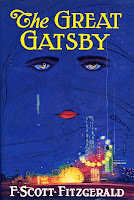So, I came across an article by Deena Stryker today, thanks to a friend, and the content astounded me. Did any of you know that Iceland had been the scene of a revolution of over the past few years? No, neither did I.
To take you back, in 2008, Iceland declared itself bankrupt. The reason being that previously, 2003 to be exact, all the banks in Iceland had been privitased, and the bankers had begun to offer minimal cost online banking which overall was aimed to attract overseas investors with great returns. The account were called IceSave. The investors inevitably flocked, primarily from Holland and the UK. However as the number of them increased, so did Iceland's foreign debt. Stryker informs us that in 2003, Iceland's debt was 200 times in GNP, and by 2007, it had risen to 900 times in GNP. Unsurprisngly, when the 2008 financial crisi hit, chaos ensued, ergo, bankruptcy.
Of course, as the largest banks were nationalized, Iceland was under growing pressure to come up with a strategy to pay back it's huge debts to investors. Protests and riots ensued, forcing one governemnt to resign, and the reinstating of a new one to come up with a plan to ease the crisis. Long story short, the decided plan was that each Icelandic tax payer, would be taxed 100 Euros a month for 15years, at 5.5% interest to pay the debt back. However, to the Icelandic people, this was not acceptable. Why should they be taxed to pay back the debts of private bankers? These debts were not incurred by them, it was the fault of other individuals who were running these previously privately owned banks. A fair point, in my opinion.
The Icelandic people protested, and what is more shocking, so did members of the government. This was the extraordinary time when the people of Iceland fought back until nothing could be done, except to give them what they wanted. The relationship between the state and the individual was torn apart and changed forever. Eventually a referendum was called, and in March 2010, 93% of voters voted against repaying the debt. However, the revolution did not stop here.
Iceland then decided to reform the entire system of state, from a new government to a new constitution. They wanted free of the constrictions of the powers that had dragged them into this mess. So, to begin with, the people of Iceland elected 25 of it's citizens, from a possible 522, who had no political party alignment, and had originally been selected by each gathering votes of at least 30 other citizens. These 25 electees now form the body making decisions in constructing the new constitution.
Perhaps even more astounding than this, is that the constitution is not being drafted behind closed doors in big board rooms of government buildings, it is all being done out in the open, publicly, on the internet. Each Icelandic citizen has the power to contribute and view the sculpting of their new constitution. This really could be the constitution of the people. It is the stuff of stories and tales of long ago, but the people of Iceland have shown us that it can be bought to the present, and can be a relevant and real event. The new constitution will be submitted to parliament for approval after the next election.
This story is one of power and of inspiration. So, why haven't we heard about it? (Aside from the fact the the UK, amongst other countries, threatened to isolate Iceland in a bid to get things their own way) Should we not be concerned as a nation that our media and our governemt seem to still be able to hide from us what they do not want us to see or hear? With all the uprisings and revolutions in the Middle East making headline news for weeks and months this year, it seems something of an anomaly that news of Iceland did not make the same headlines. This country should be celebrated for the changes it's people have brought about, and yet I do not recall hearing or reading about any of this in the context that it should have been. This free speech world we live in seems to be failing us.
I leave you with this thought; Have these events been hidden from us? Or is it just that our culture is so focussed on the negative, the barbaric, and the inane, that something as profound as a nation of people taking control of their own country, just isn't considered important enough? How does this slip under the radar?















